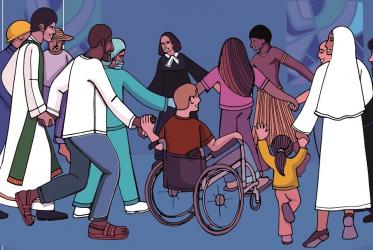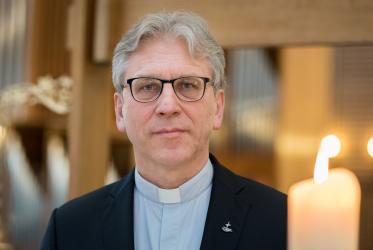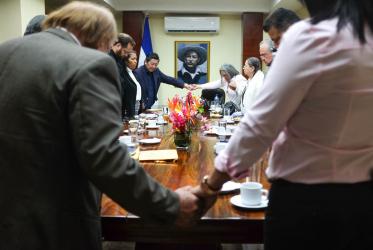Displaying 1 - 20 of 59
Brazilian churches call for transformative racial justice
23 November 2020
Religions for Peace assembly convenes in Lindau
19 August 2019
Dealing with traumas and healing of wounds
04 June 2019
Bossey transforms the life of ecumenical students
29 January 2019
A moment in ‘Time’: an interreligious vision in Erlangen
20 December 2018
WCC, ACT reflect on ecumenical diakonia in historic meeting
01 November 2018
Looking back and ahead
31 October 2018













